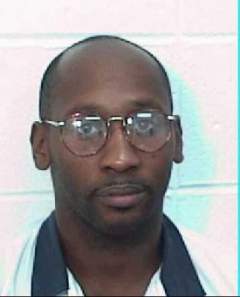Troy Davis Wrongfully Executed

Troy Anthony Davis
(October 9, 1968 – September 21, 2011)
Photo Credit: Georgia Department of Corrections
In my article How Many Wrongly Convicted Have Been Executed Since 1977?, I promised to post a detailed article for each of the poor souls who were wrongfully executed. Today we will cover Troy Davis who was executed in Georgia in 2011.
The case looks simple: Troy Davis was convicted of and executed for the August 19, 1989, murder of police officer Mark MacPhail in Savannah, Georgia. The officer was working as a security guard when he intervened in a fight in a parking lot. During Davis's 1991 trial, seven witnesses identified Davis as the shooter and two others testified he had confessed the murder to them.
Cut and dry.
Except that seven of the nine witnesses changed or recanted their previous testimony. Three witnesses signed affidavits stating that Red Coles had confessed the murder to them (Coles was one of the witnesses against Davis).
Some witnesses were told they would be imprisoned if they refused to co-operate with the investigation.
One of the so-called confessions was to a jailhouse snitch (how convenient) but both later admitted there was no such confession.
One witness stated he did not know who had shot the cop and that because he was illiterate he could not read the police statements he had signed in 1989.
There was no gun found and the conviction was mostly based on eyewitness testimony. Coles, the real killer, never appeared in a lineup nor was his photo ever shown to the other witnesses.
Only two of the witnesses never recanted - one was Coles himself, understandable since he was the real shooter, and another who probably went along in the beginning because there seemed to be so many witnesses against Davis. It should be remembered that 75% of eyewitness testimony is mistaken and the other 25% is sometimes just self-serving.
For the police that night, the first guy to implicate another is standard procedure to fabricate evidence or force witnesses to testify against a supposed murderer. Here's why: if Davis is an honest person and wasn't there at the time of the shooting then he won't implicate or testify against anyone and the police have no case, especially in murder cases where there is extreme pressure to find someone guilty; however if police have a dishonest and real killer who is willing to testify against someone, anyone, then the cops have a case and only need to find "evidence" and "witnesses."
For example, one of the "witnesses," Dorothy Ferrell, didn't see Davis at all but felt under pressure from police to identify Davis as the shooter because she was on parole for a shoplifting conviction at the time.
The Georgia Bureau of Investigations has conceded that the ballistics evidence used against Davis was unreliable, and one of the Jurors who sat on the case said that if she had known about that she would not have voted to give Davis the death penalty.
This is how, in many cases, Justice is served in Death Penalty cases.
In his final words, Davis maintained his innocence, saying:
Well, first of all I'd like to address the MacPhail family. I'd like to let you all know, despite the situation – I know all of you are still convinced that I'm the person that killed your father, your son and your brother, but I am innocent. The incident that happened that night was not my fault. I did not have a gun that night. I did not shoot your family member. But I am so sorry for your loss. I really am – sincerely. All I can ask is that each of you look deeper into this case, so that you really will finally see the truth. I ask my family and friends that you all continue to pray, that you all continue to forgive. Continue to fight this fight. For those about to take my life, may God have mercy on all of your souls. God bless you all.
For more details read the Brief of the Georgia Innocence Project [PDF] here.

